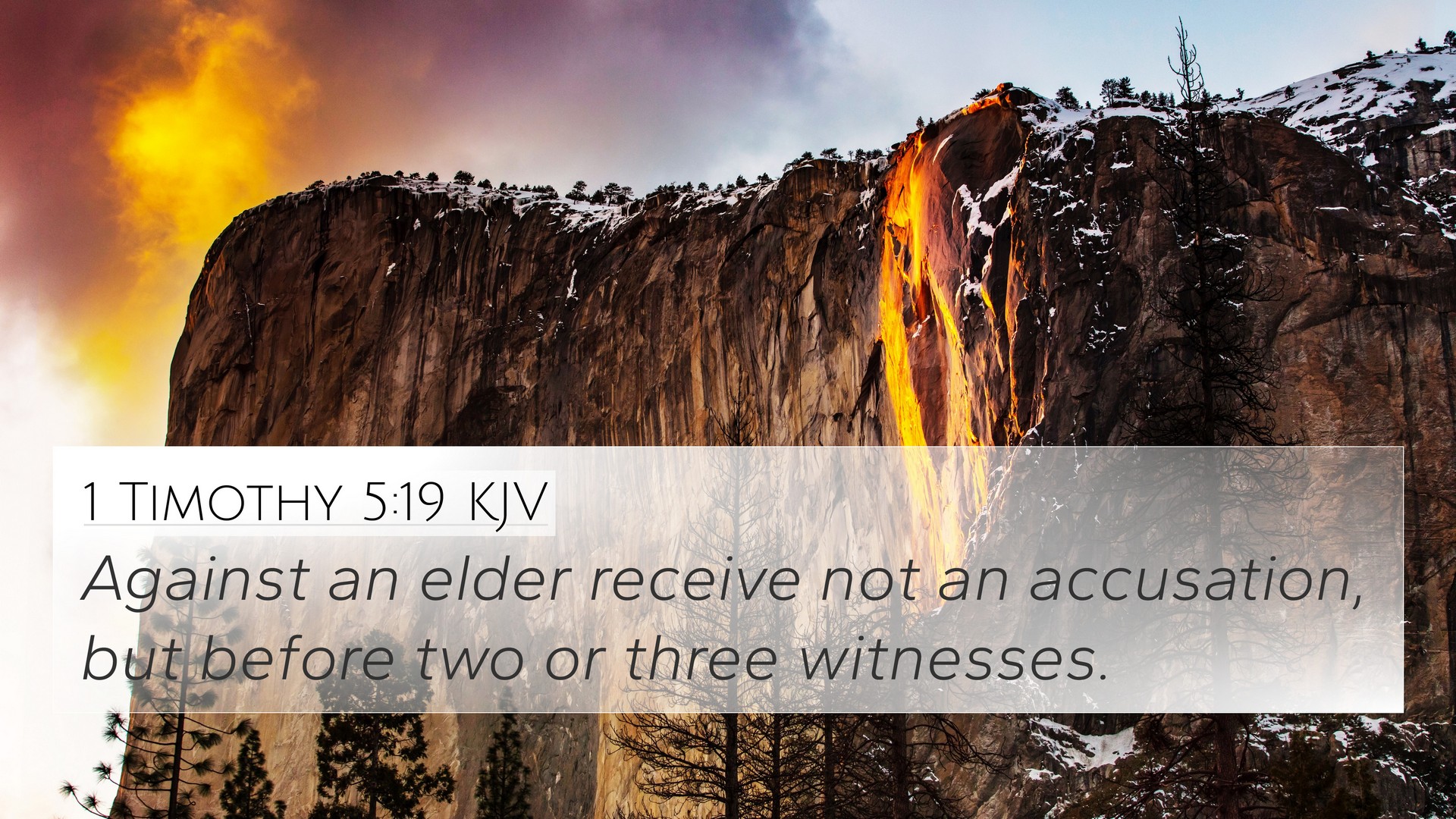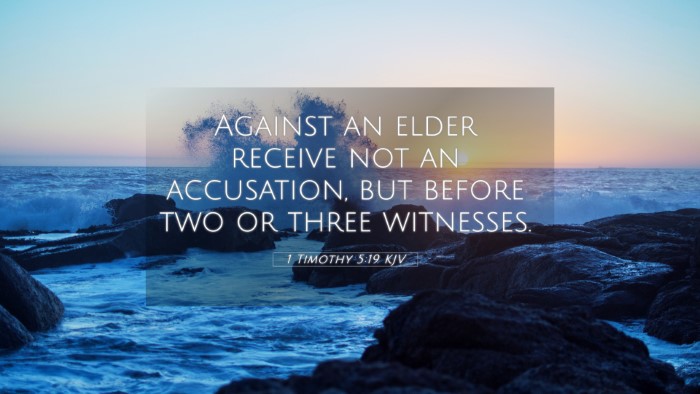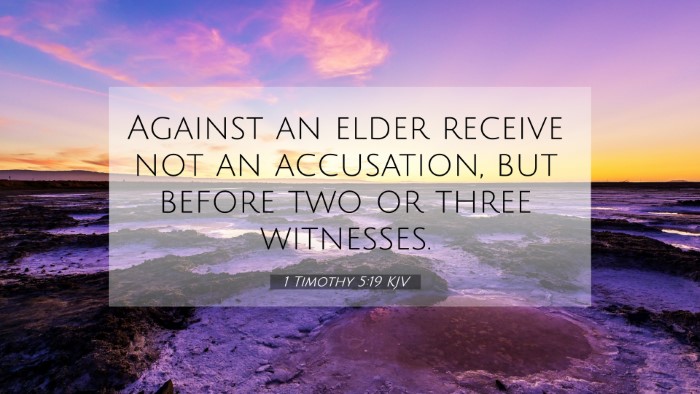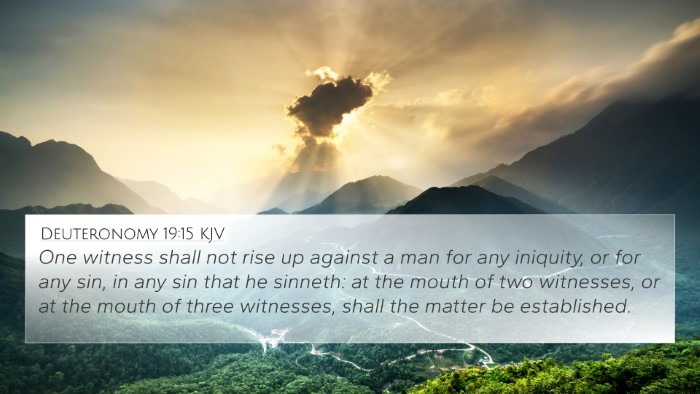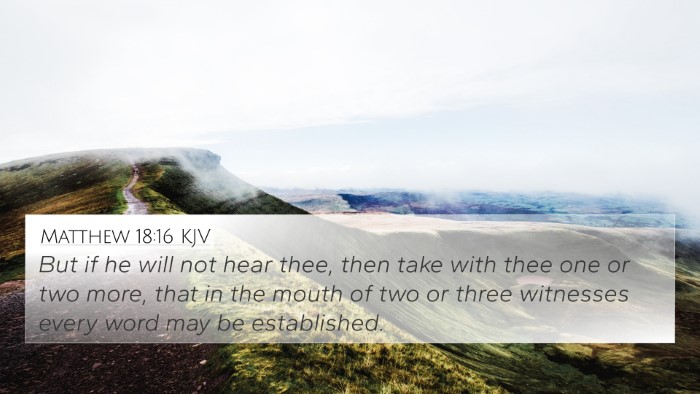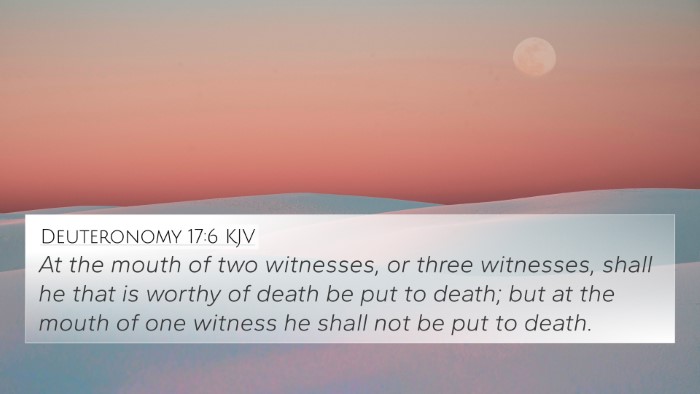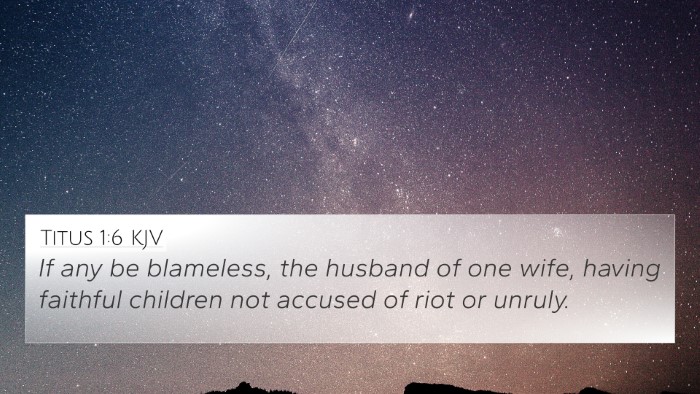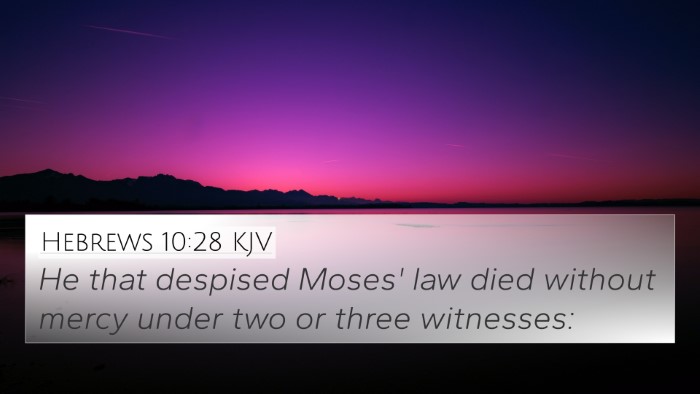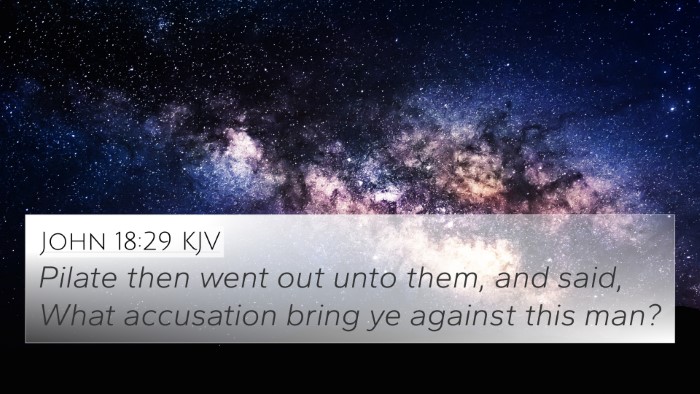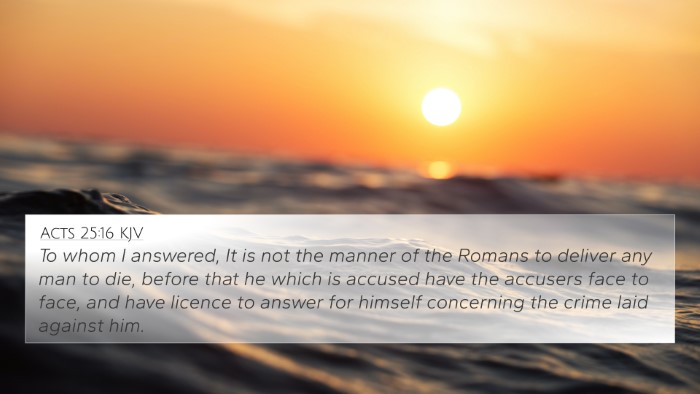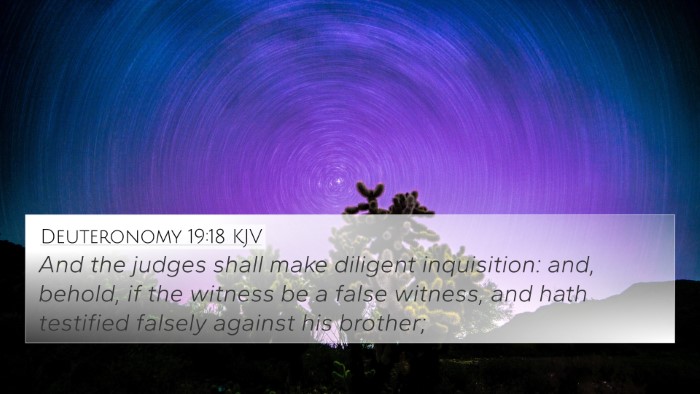Understanding 1 Timothy 5:19
1 Timothy 5:19 (KJV): "Against an elder receive not an accusation, but before two or three witnesses."
Verse Summary
This verse emphasizes the importance of caution and due process in accusations against church leaders. Paul instructs Timothy to ensure that allegations are substantiated by multiple witnesses, highlighting the need for integrity and verification in church governance.
Commentary Insights
The following insights are drawn from notable public domain commentaries:
-
Matthew Henry:
Henry emphasizes that accusations against elders should not be taken lightly. He notes that the church’s discipline must be just and fair, advocating for the protection of leaders from unfounded allegations, which can arise from malice or misunderstanding. Henry asserts the necessity of witnesses to protect both the accused elder and the integrity of the church.
-
Albert Barnes:
Barnes focuses on the judicial aspects of church governance. He points out that the principle of requiring multiple witnesses originates from Old Testament law (Deuteronomy 19:15), reinforcing the importance of establishing truth in any serious claim. This requirement safeguards the dignity of church leaders and ensures that only valid accusations are brought forth.
-
Adam Clarke:
Clarke elaborates on the nature of accusations and the potential harm they can inflict. He considers the difficulties faced by elders and suggests that the integrity of the church is at stake. He encourages Timothy to approach such matters with a spirit of love and care, demonstrating a balance of accountability and compassion.
Cross-References
1 Timothy 5:19 connects significantly with several other verses:
-
Matthew 18:16: "But if he will not hear thee, then take with thee one or two more, that in the mouth of two or three witnesses every word may be established."
This verse establishes the biblical principle of witnesses, essential for validating accusations.
-
Deuteronomy 19:15: "One witness shall not rise up against a man for any iniquity, or for any sin, in any sin that he sinneth: at the mouth of two witnesses, or at the mouth of three witnesses, shall the matter be established."
This Old Testament law serves as a foundation for the New Testament instruction presented by Paul.
-
1 Timothy 5:20: "Them that sin rebuke before all, that others also may fear."
While caution is advised in accusations, Paul also acknowledges the necessity of rebuke for those who sin, ensuring public accountability.
-
Titus 1:7: "For a bishop must be blameless, as the steward of God; not self-willed, not soon angry, not given to wine, no striker, not given to filthy lucre."
This verse underscores the character expectations for church leaders, further supporting the need for careful consideration in accusations.
-
James 3:1: "My brethren, be not many masters, knowing that we shall receive the greater condemnation."
This reflects the weight of responsibility that leaders bear, suggesting that accusations carry grave implications.
-
Romans 14:10: "But why dost thou judge thy brother? or why dost thou set at nought thy brother? for we shall all stand before the judgment seat of Christ."
This indicates a warning against judgment, which ties into the principle of being cautious in accusations.
-
Proverbs 18:17: "He that is first in his own cause seemeth just; but his neighbour cometh and searcheth him."
This verse advises that initial accusations may not present the whole truth, necessitating thorough investigation through witnesses.
Thematic Connections
This verse suggests various themes relevant to understanding church governance and relationship dynamics among believers:
-
Integrity in Leadership:
Church leaders must be held to high standards of accountability, requiring a careful approach to accusations.
-
Justice and Fairness:
The requirement for multiple witnesses reflects a broader biblical theme of justice being administered fairly within the community.
-
Community Responsibility:
The role of the church community in addressing accusations highlights the collective responsibility to maintain integrity.
Conclusion
1 Timothy 5:19 provides vital instruction regarding the treatment of accusations against church leaders, calling for a careful and deliberate process backed by witnesses. This approach not only protects leaders from false accusations but also upholds the integrity and unity of the church community. The cross-references and thematic connections to this verse further enrich our understanding and application of these biblical principles.
Further Study Recommendations
For those interested in deeper exploration of these themes and connections, utilizing a Bible concordance, a Bible cross-reference guide, or engaging in cross-reference Bible study can be instrumental.
